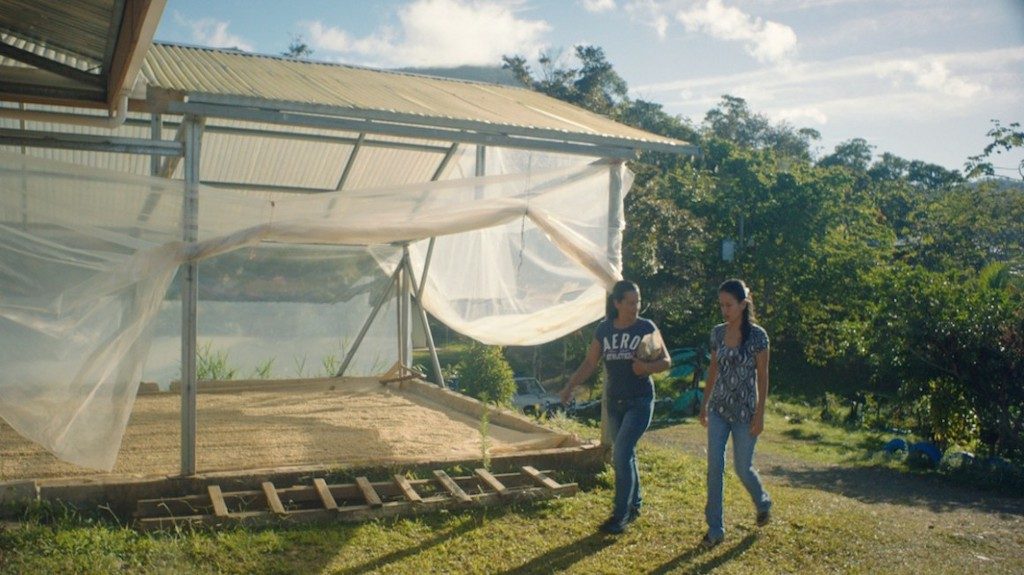Producer
Lesley Chilcott partnered with Davis Guggenheim on the 2006 Academy
Award-winning documentary An Inconvenient Truth, the documentary feature It Might Get Loud (2009), the Barack Obama biographic film for the Democratic
National Convention A Mother’s Promise (2008), and Waiting for Superman (2010), on which she also served as the 2nd unit director. Chilcott has won numerous accolades, such as
the PGA Award for Outstanding Producer of Documentary Theatrical Motion
Pictures, as well as the Critic’s Choice Movie Awards, and the National Board of
Review for Best Documentary, among others.
Chilcott now directs both
documentaries and commercial projects. Last year, she directed the short film
Codestars for code.org, which
garnered over 20 million views online and was the number one video on YouTube
for two days. She has just completed A Small Section in the World, a documentary
about a village of women coffee producers from the Talamanca mountains in Costa
Rica. (Press materials)
A Small Section of the World will play at DOC NYC on
November 14.
W&H: Please give us
your description of the film playing.
LC: A
Small Section of the World is
a story about a group of women coffee producers from the Talamanca mountains in
Costa Rica. They literally built a micro mill on top of a hill out in the
middle of nowhere and learned to process high-quality coffee. Along the way, they transformed their community and sent their kids to college, and they are
now coming back to run the place.
W&H: What drew
you to this story?
LC: My husband and I
have a small farm in Guanacaste in Costa Rica, and I love the people and the culture
there. So when you combine that with a story about women’s empowerment through
growing coffee and taking care of the land, I’m in!
W&H: What was the
biggest challenge in making the film?
LC: Logistics, as the
area of Biolley, where [the local women’s group] ASOMOBI is located, is five hours from San Jose, the Costa
Rican capital. The last 1.5 hours is on a dirt road. The mountainous area is the perfect
elevation for growing coffee and you often see clouds blanketing the valley
below, so it’s an absolutely stunning and rewarding location.
Also, for me, it
was important to make sure I got their story exactly right, so I made several
trips to make sure I really understood the history, not only from their
perspective but also from those around them.
W&H: What do you
want people to think about when they are leaving the theater?
LC: I want people to
think about the women in the film and women like them every time they drink
their morning coffee and tea. At least for a while! Think about how many people
it took to make that cup of coffee. We are so disconnected from how our food is
made, what goes on in the fields, and even in the factories. We have become too
separated.
W&H: What advice
do you have for other female directors?
LC: Don’t let anyone
tell you that you have to fit in a particular role, i.e., women do this or
that. While storytelling is always first, learn the technical side too. It will
give you the confidence to make the right decisions about telling your story.
W&H: What’s the
biggest misconception about you and your work?
LC: I think it might
be that I only do serious, issue-oriented projects. While that is true a lot of
the time, sometimes a simple story that you can tell well is really satisfying
and a lot of fun.
W&H: How did you
get your film funded?
LC: Illy Caffe in
Trieste, Italy, paid for the film. Unusually, they actually send their
agronomists out into the field to teach, and learn from, small farm-holders and
micro-mill producers. ASOMOBI is one of 400 small producers that Illy sources
their coffee from, and when one of their agronomists shared the story of these
women with their mill on the hill, Illy thought they should maybe make a film
about them.
For me, this was an interesting conundrum at first: Was it a good
idea to make a documentary paid for by a company like Illy? Well, Illy is a
privately run company. The third generation is now running it. ASOMOBI is now
passing the baton to the second generation. Illy has 47% women in their
company; ASOMOBI is all women. So I took a chance, and I’m really happy I did. In
the end, Illy gave me final cut, and I was able to tell the story I wanted to
tell. They’ve really been amazing and forward-thinking with this project, and
they have a history of supporting the arts. Hopefully that will continue.
W&H: Name your
favorite women directed film and why.






